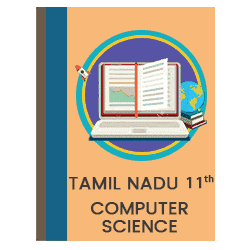11th Standard Syllabus & Materials
11th Standard
Tamilnadu 11th Standard Tamil மொழி கலை -செய்யுள் - ஒவ்வொரு புல்லையும் Important Questions And Answers Study Material - QB365
NEW11th Standard
Tamilnadu 11th Standard Tamil கேடில் விழுச்செல்வம் - உரைநடை - தமிழகக் கல்வி வரலாறு Important Questions And Answers Study Material - QB365
NEW11th Standard
Tamilnadu 11th Standard Tamil பீடு பெற நில் - இலக்கணம் - பகுபத உறுப்புகள் Important Questions And Answers Study Material - QB365
NEW11th Standard
Tamilnadu 11th Standard Tamil பீடு பெற நில் - செய்யுள் - குறுந்தொகை Important Questions And Answers Study Material - QB365
NEW11th Standard
Tamilnadu 11th Standard Tamil பீடு பெற நில் - செய்யுள் - குறுந்தொகை Important Questions And Answers Study Material - QB365
NEW11th Standard
Tamilnadu 11th Standard Tamil பீடு பெற நில் - செய்யுள் - காவடிச்சிந்து Important Questions And Answers Study Material - QB365
NEW11th Standard
Tamilnadu 11th Standard Tamil பீடு பெற நில் - செய்யுள் - காவடிச்சிந்து Important Questions And Answers Study Material - QB365
NEW11th Standard
Tamilnadu 11th Standard Tamil பீடு பெற நில் - உரைநடை - மலை இடப்பெயர்கள் : ஓர் ஆய்வு Important Questions And Answers Study Material - QB365
NEW11th Standard
Tamilnadu 11th Standard Tamil பீடு பெற நில் - உரைநடை - மலை இடப்பெயர்கள் : ஓர் ஆய்வு Important Questions And Answers Study Material - QB365
NEW11th Standard
Tamilnadu 11th Standard Tamil மாமழை போற்றுதும் - செய்யுள் - ஐங்குறுநூறு Important Questions And Answers Study Material - QB365

Published on: 20/03/2020
11th Standard History full portion important One Mark Questions -2020
Download Tamil Nadu 11th Standard History question papers, model tests, one-mark questions, important questions, and public exam papers in PDF format. Free study materials and answer keys for TN State Board students.
Questions + Answers key
Tamilnadu Stateboard 11th Standard Subjects

Maths

Commerce

Economics

Biology

Business Maths and Statistics

Accountancy

Computer Science

Physics

Chemistry

Maths

Biology

Economics

Physics

Chemistry

History

Business Maths and Statistics

Computer Science

Accountancy

Computer Applications

History

Computer Technology

Commerce

Computer Applications

Computer Technology

Tamil

English

French
Tamilnadu Stateboard Standards